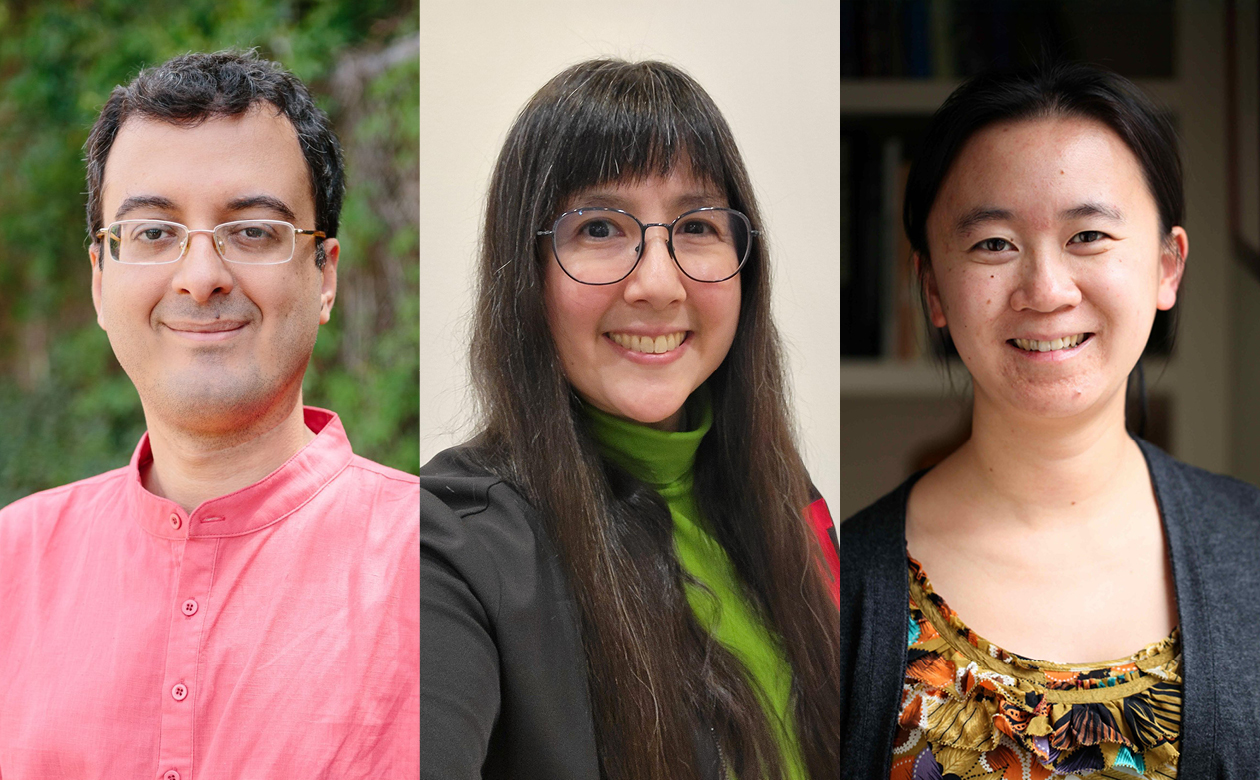
Three SCI Faculty Earn Top National Award for Early Career Scientists and Engineers
University of Utah Scientific Computing and Imaging (SCI) Institute faculty members Amirhossein (Amir) Arzani, Katherine (Kate) Isaacs, and Bei Wang Phillips on Jan. 14 received the Presidential Early Career Award for Scientists and Engineers (PECASE), the U.S. government’s highest honor for outstanding scientists and engineers early in their careers.
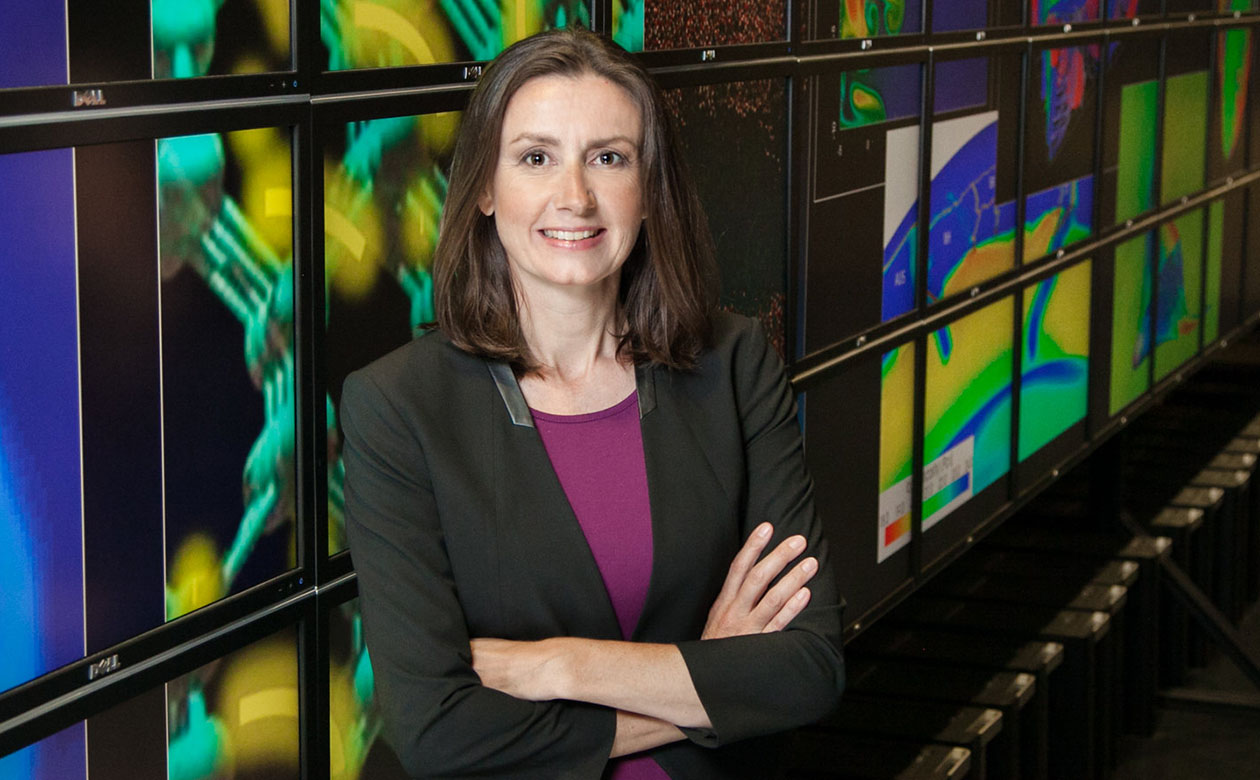
Distinguished SCI Seminar: Karen E. Willcox on Predictive Digital Twins at Scale
Predictive Digital Twins at Scale: Graphical Formulations to Manage Uncertainty and Complexity
Speaker: Karen E. Willcox, Director, Oden Institute for Computational Engineering and Sciences, The University of Texas at AustinWhen: Thursday, April 3, 2025, 2–3 pm
Where: Warnock Engineering Building, Evans Conference Room (WEB 3780), University of Utah, 72 S Central Campus Dr, Salt Lake City, UT 84112
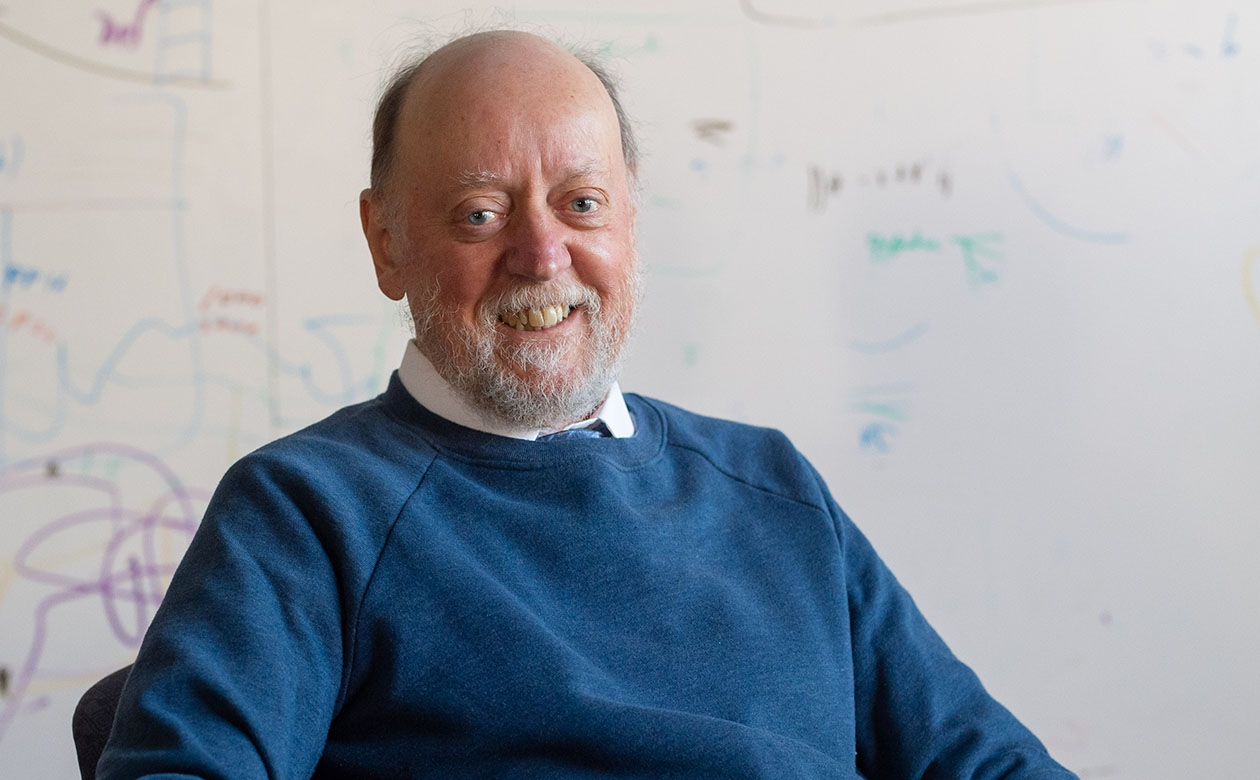
Distinguished SCI Seminar: Jack Dongarra on High-Performance Computing and Responsibly Reckless Algorithms
An Overview of High-Performance Computing and Responsibly Reckless Algorithms
Speaker: Jack Dongarra, University of Tennessee, Oak Ridge National Laboratory, University of ManchesterWhen: Thursday, Feb. 6, 2025, 2–3 pm
Where: Warnock Engineering Building, Evans Conference Room (WEB 3780), University of Utah, 72 S Central Campus Dr, Salt Lake City, UT 84112

SCI's Jess Tate Named one of the U’s First Innovation Ambassadors
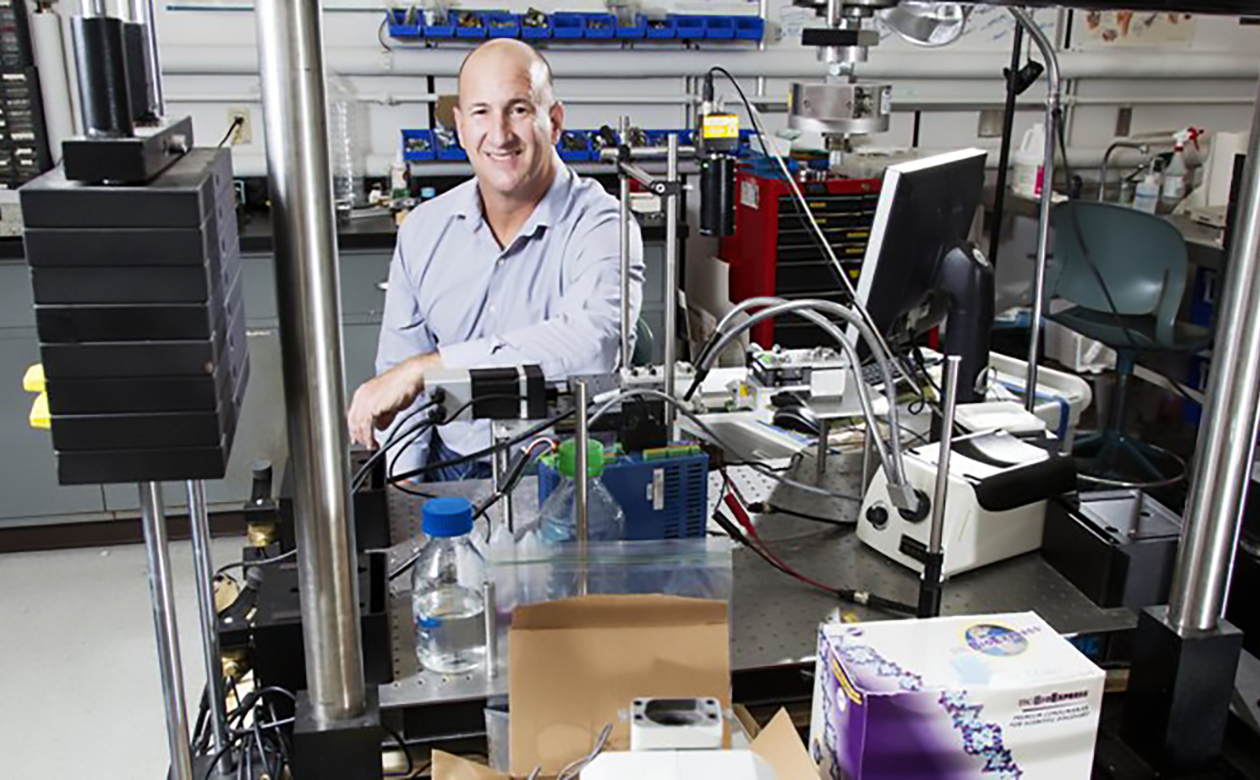
$2M NIH Grant Renewal Will Bring FEBio Open-Source Software into its 20th Year
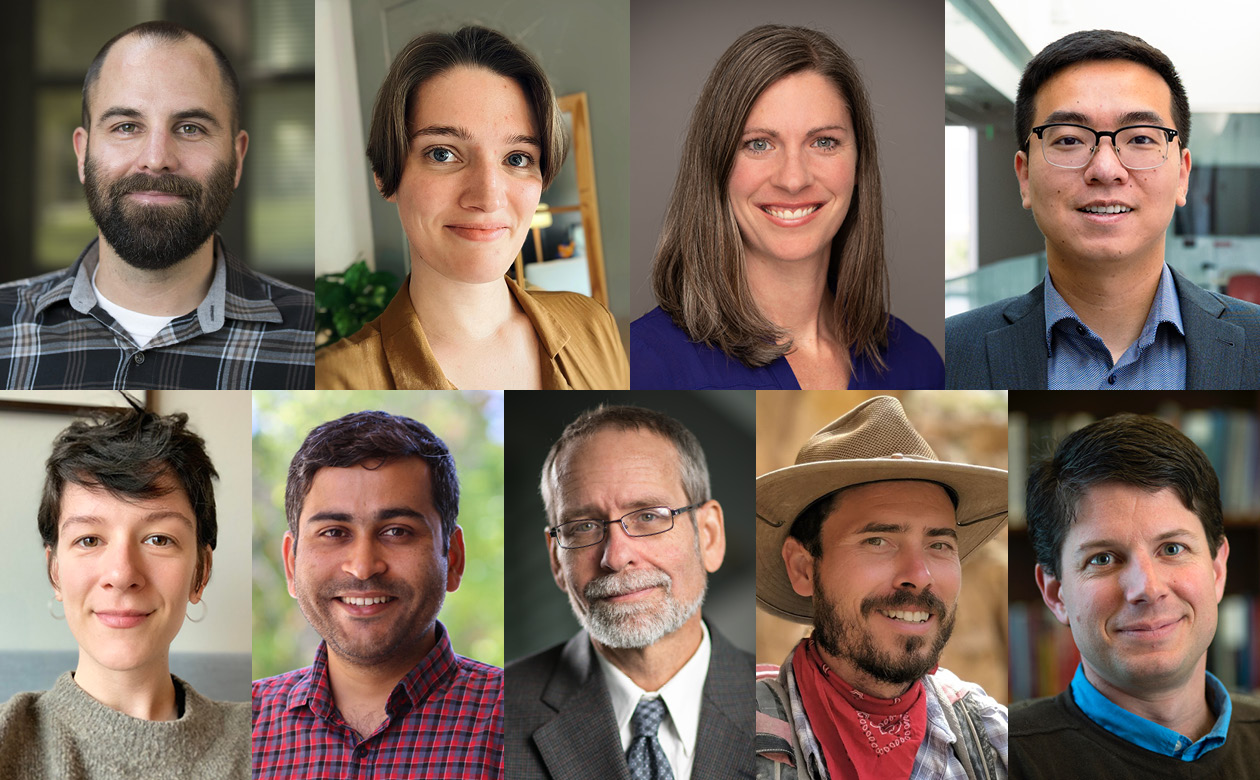
One-U RAI Announces Inaugural Awardees: 7 Faculty Fellows, 1 Postdoctoral Fellow, and 1 Distinguished Visitor
Thursday, Nov. 21, 2024 (updated Dec. 9)—In its first push to attract and retain top talent in translational AI, the University of Utah One-U Responsible Artificial Intelligence Initiative (RAI) has named seven faculty fellows, one postdoctoral fellow, and one distinguished visitor.
The faculty fellows span six colleges across the U and their work is expected to drive progress in one or more of the initiative’s thematic areas: environment, healthcare and wellness, and teaching and learning. One-U RAI will typically award three to five fellows each year, but increased that number for 2025 due to a strong applicant pool and excitement from U leadership. "Our inaugural cohort of faculty fellows represents a wonderful cross-section of U faculty,” said Manish Parashar, director of the Scientific Computing and Imaging Institute, which houses One-U RAI. “We look forward to integrating their expertise into One-U RAI and working toward shared goals, from recommending guardrails that protect individuals to applying AI to solve complex societal challenges."
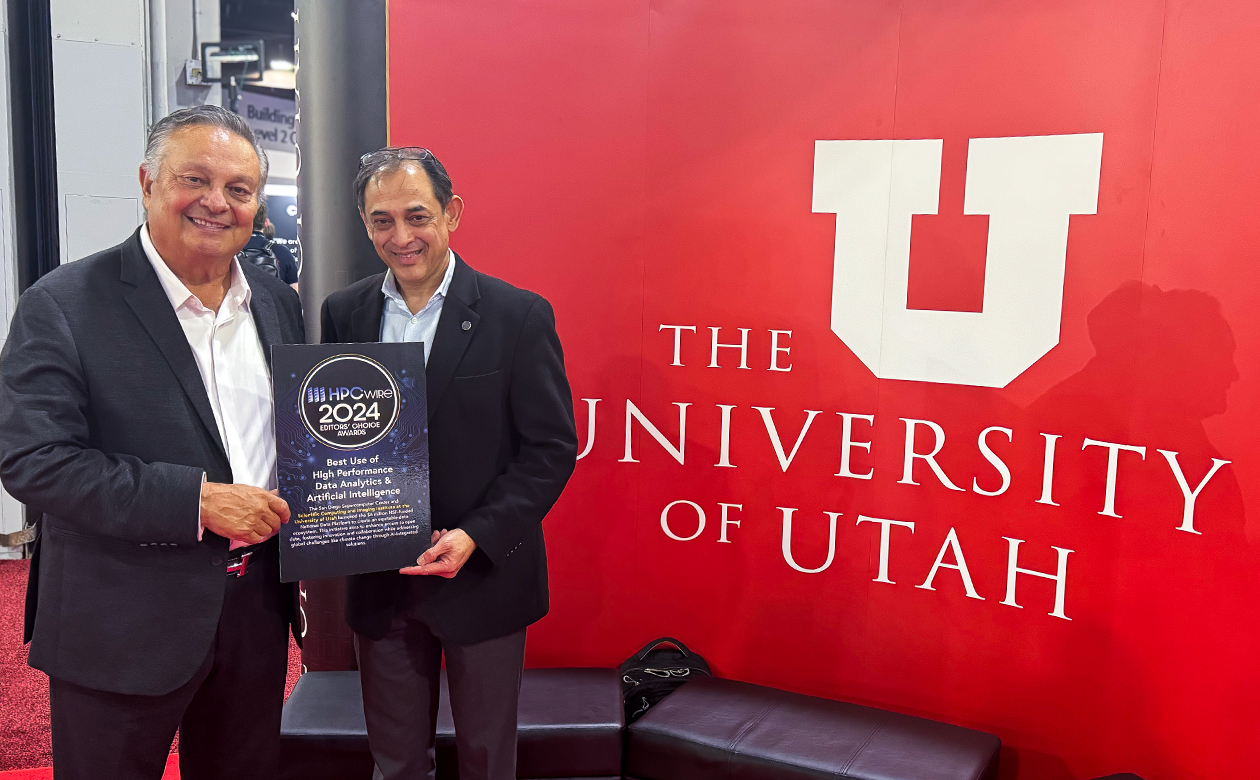
SCI Receives HPCwire Award for National Data Platform, an Effort to Democratize Responsible AI R&D
The SCI Institute and the San Diego Supercomputer Center (SDSC) won an Editors’ Choice Award for the National Data Platform (NDP), which HPCwire called the “best use of high performance data analytics and artificial intelligence.” Last year, following a $6 million grant from the National Science Foundation (NSF), the SCI Institute and SDSC launched NDP to create an equitable data ecosystem. The grant comes from a pilot program under NSF's National Artificial Intelligence Research Resource (NAIRR), “a concept for a national infrastructure that connects U.S. researchers to computational, data, software, model and training resources they need to participate in AI research.” Accordingly, NDP aims to enhance access to open data, fostering innovation and collaboration while addressing global challenges like climate change through AI-integrated solutions.
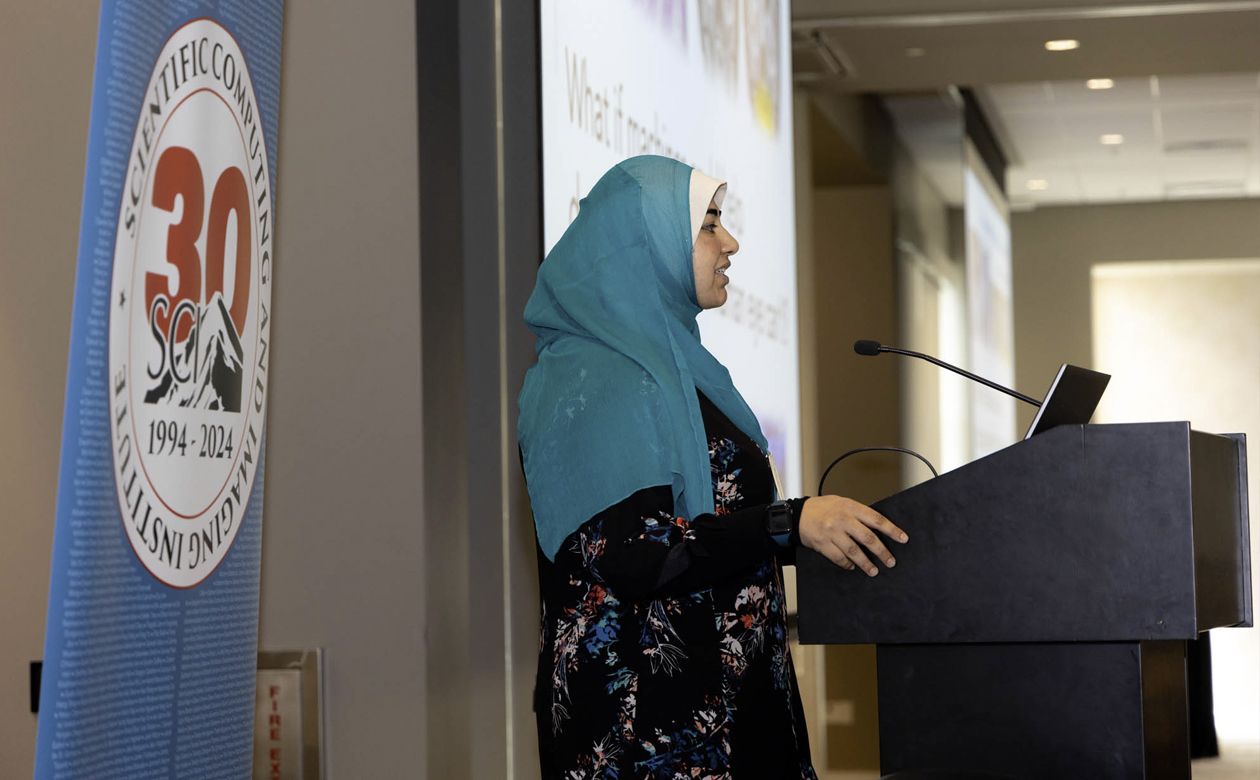
Promise and Potential Pitfalls of AI in Health Care Come to the Fore at One-U RAI Symposium
 The potential of artificial intelligence (AI) sometimes seems limitless. But with that potential comes serious new concerns, such as bias, misinformation, and privacy violations. How to develop and implement AI in a way that ethically addresses those concerns is the goal of the One-U Responsible AI Initiative (RAI), which launched in fall 2023 and held its inaugural symposium this September to a packed audience.
The potential of artificial intelligence (AI) sometimes seems limitless. But with that potential comes serious new concerns, such as bias, misinformation, and privacy violations. How to develop and implement AI in a way that ethically addresses those concerns is the goal of the One-U Responsible AI Initiative (RAI), which launched in fall 2023 and held its inaugural symposium this September to a packed audience.
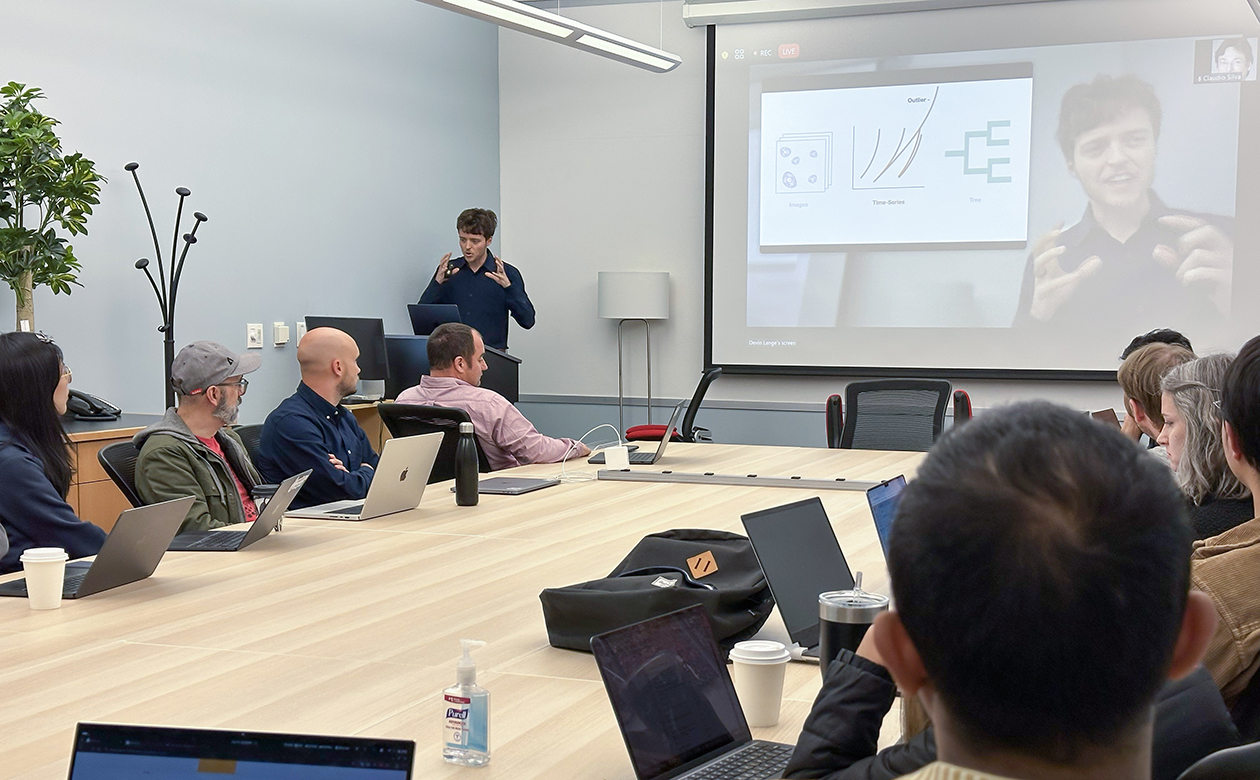
SCI’s Strong Showing at IEEE VIS Includes Top Awards and Organizers
After back-to-back hurricanes forced IEEE VIS organizers to change Florida venues and ultimately abandon in-person conference plans, the event went virtual this week, with a strong presence from the University of Utah Scientific Computing and Imaging (SCI) Institute.
SCI faculty member and VIS General Chair Paul Rosen was gutted by the bad luck, but commended his VIS peers for their response—which included organizing in-person satellite events at the U and beyond. “We had to not just pivot, but double-pivot in two and a half weeks,” Rosen said. “The community really came together and is making the best of the situation.”
VIS, which dates to 1990, is the top forum for advances in visualization and visual analytics. In its 30-year history, SCI has been well-represented at the annual conference and has also hosted/chaired VIS in 2000, 2010, and 2020. According to Rosen, SCI’s presence is especially prolific this year:
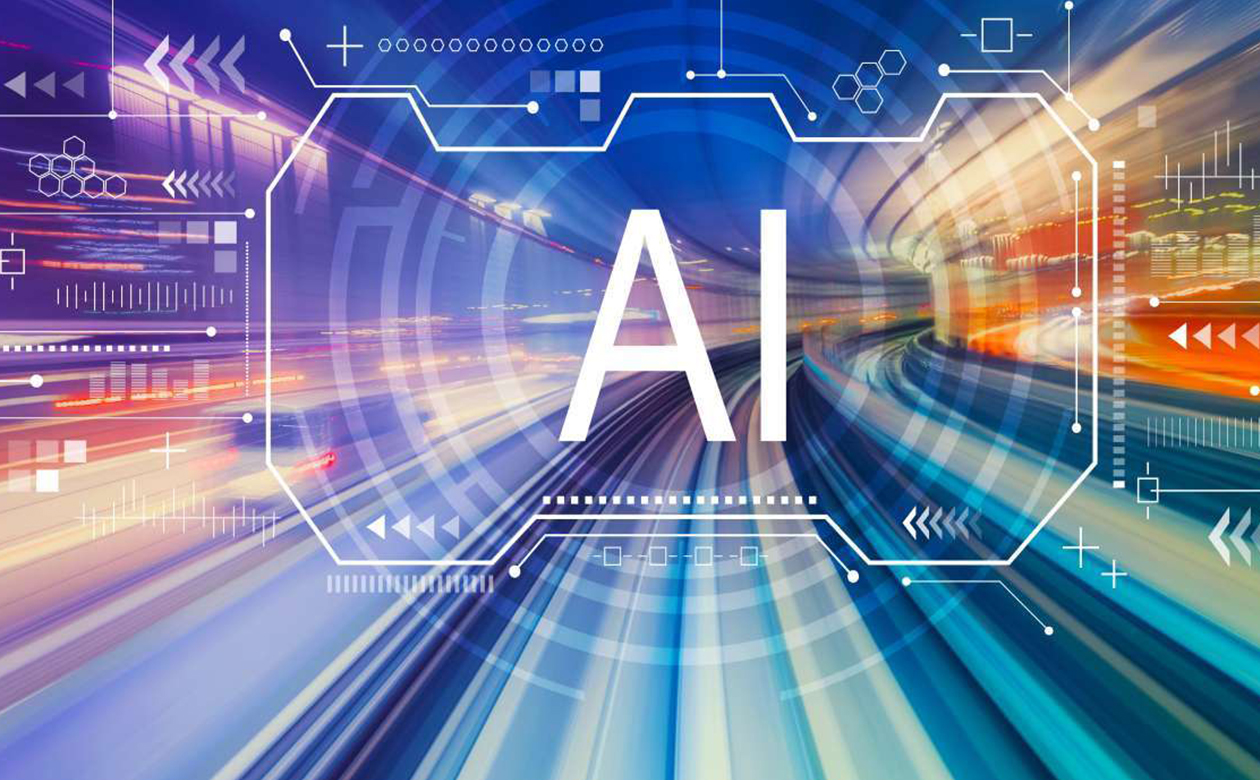
Here's how and why Utah is positioned to be a leader when it comes to democratizing AI
By Logan Stefanich, KSL.com
OREM — At this point, the cat is out of the bag when it comes to artificial intelligence.
Whether used for work or play, it's become an undeniable fixture in day-to-day life for many.
"It's clear that AI is transforming every aspect of our lives. It's driving innovation, accelerating innovation, discoveries (and) amplifying impact on science and society. It's really impacting every aspect of what we do," said Manish Parashar, director of the Scientific Computing and Imaging Institute at the University of Utah.
But, can AI be harnessed responsibly, making it accessible to everyone and driving transformative innovation and societal progress? That question was at the heart of Parashar's message as he spoke during the second annual Silicon Slopes AI Summit in Orem on Thursday.